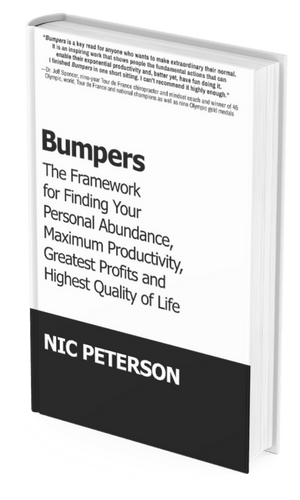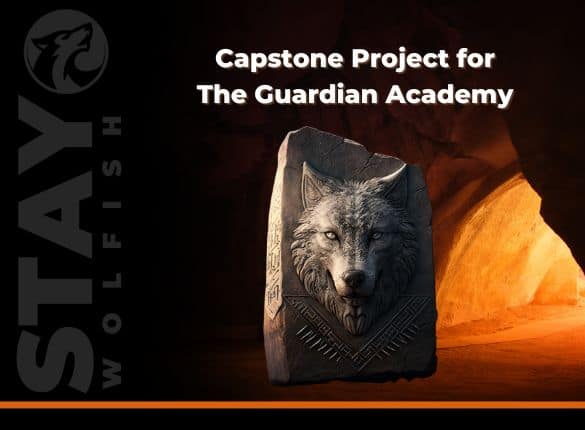The Guardian Academy (TGA), formerly the Wolf Den, is a community driven educational project designed to help people navigate the Web3 world. In fact, this is where we got our start into the web3 space and must say we’re fortunate to have found this project at the onset of our journey.
Since joining TGA in December 2021, our lives have changed through application of various principles and frameworks we’ve learned from the educational content and community discussions.
One thing we love about TGA is that it’s so much more than learning how to navigate web3, you become a much better person in the process. The lessons we’ve learned and applied to our life has been a game changer on so many levels.
TGA is structured into member tiers, with the highest level tier being Guardian. Check out this article if you want to learn more about TGA and their tier structure.
With Guardian being the highest level tier, you are required to submit a Capstone before you’re allowed access. What exactly is a Capstone? Might you ask…let’s dive in!
The Capstone represents the principles and frameworks learned inside TGA that will help you move closer to what you want most out of life.
And more importantly, how you’ve applied those principles and underpinnings. It’s not just more knowledge, it’s applied knowledge.
To completing the Capstone covers 5 key points that must be clearly articulated using your individual style of communication. Playing the game we love, our approach was to work on the assignment individually and then come together to record our findings on a podcast that incorporated dialogue around what we’ve learned.
In summary, this is what we discussed within each of these 5 key topics…
1.) Biggest Takeaway
Dwayne mentioned his experience of keeping open loops or not taking quick action to filling gaps in his life. The process of sitting with uncertainty, and how practicing restraint helped provide clarity around answering the question “what’s next?”.
For Jake, this encompassed a powerful filtering system that combines several principles taught inside The Guardian Academy to answer the following questions when faced with a decision:
Does this help me close the gap in relation to my solvable problem?
Am I playing my game, or someone else’s?
How can this be done with the least amount of risk, least amount of effort, while leaving me with the most options?
If all checks out, then micro step with C.A.S.E., which is a framework that stands for Compile, Analyze, Strategize, Execute. This form of execution creates a feedback loop that works in real time to present the most efficient path forward in pursuit of what you want most in life.
2.) Setup your Bumpers
Bumpers is a book written by Nic Peterson that provides a framework for keeping you aligned (and out of the gutter). Jake and Dwayne talk about their bumpers, why they are meaningful to their personal situations, and discuss some of their non-negotiables. Here’s a few examples of bumpers they’ve put in place for themselves:
- Do NOT collaborate with toxic energy.
- Refuse to make decisions while in a state of euphoria or fear.
- Commit to your game, play your game.
- Avoid obligations that move you further away from family.

Get the Bumpers Book by Nic Peterson
3.) Identify your Macro Beliefs
This one was tough, and we didn’t want to immediately default to $GUARD just because it’s the preferred treasury asset of the Wolf Den — but rather have more of a reason as to why $GUARD token of Guard Foundation is our Macro Belief based on logic, reasoning, and evidence. Our reasoning came down to a few key factors that includes certain fundamentals:
- Fixed supply of 50,000,000.
- Can be used as collateral for lending.
- Liquidity pair with BUSD for added stability.
- Compound interest with option for staking and yield farming.
- Fueling various projects built on top of the Guard Foundation.
And more specifically the team behind $GUARD’s development are top notch, fundamentals are constantly improving for this token and the potential for it to become a top cryptocurrency is highly likely (based on our beliefs).
4.) Have a Solvable Problem ™
What are you solving for?
You see…most people don’t have a solvable problem, so they just chase more. Our operating system biases closer versus more. Closing the gap between where you’re at today and where you want to be at some reasonable time in the future.
What capital and cash flow do you have to allocate towards solving this problem, and what is the average return on investment you need to solve your problem in the defined time line, based on your macro belief for investment.
Credit to Dan Nicholson with Nth Degree CPAs for this concept of the Solvable Problem.
5.) Evidence of Application
There are many examples of evidence where these principles have been applied to our lives. In short, the results have simply made us better humans and our actions now get us closer to what we want in life.
In fact, going through this exercise of creating our Capstone was quite the eye opener and served as a hard look in the mirror. We plan to revisit the items in our Capstone on a regular basis to continue evaluating our position, beliefs, and how we can make adjustments to stay on track with getting the things we want most in life.
Connect with Us
DISCLAIMER: These episodes are for educational purposes only. Nothing in this episode should be construed as financial advice or a recommendation to buy or sell any sort of security or investment. Consult with a professional financial advisor before making any financial decisions. Some of the links posted inside the show notes may be affiliate links, which means we receive a small commission if you click through and make a purchase. This has no impact on your experience with the product or business.





